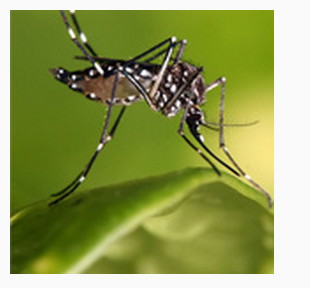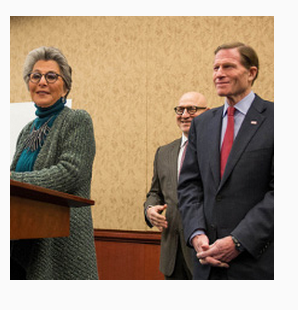Each month, the Alliance tracks the world s top news and opinions on agricultural biotechnology. If you or someone in your organization is interested in contributing reports to the Monthly Monitor, please let us know at allianceforsci@cornell.edu. We always encourage you to submit important news reports from your region.
U.S. Approves Arctic Apple Biotech Apple that Resists Browning
 On February 13, the USDA approved the release of two apple varieties genetically engineered to resist browning. The USDA decision is a milestone for agricultural biotech not only because the Arctic Granny and Arctic Golden are among the first GE crops with a direct consumer benefit, but because the non-browning apples were created by a small company, Okanagan Specialty Fruits, of Summerland, British Columbia.
On February 13, the USDA approved the release of two apple varieties genetically engineered to resist browning. The USDA decision is a milestone for agricultural biotech not only because the Arctic Granny and Arctic Golden are among the first GE crops with a direct consumer benefit, but because the non-browning apples were created by a small company, Okanagan Specialty Fruits, of Summerland, British Columbia.
The two apple varieties aren t transgenic they use extra copies of genes already present in apples to slow down production of the polyphenol oxidase, the enzyme responsible for browning in apple flesh. Although the biotech apples use gene-silencing, rather than transgenics, they have provoked strong opposition from anti-GE groups claiming the apple could destroy the North American apple industry. Some activists have declared that the apples will contaminate British Columbia, while many growers announced they won t grow Arctic apples. In the marketplace we participate in, an American grower told the New York Times, there doesn t seem to be room for genetically modified apples now.
But Neal Carter, the president of Okanagan, predicted the apples would be a game-changer. In interviews, Carter has said the Arctic apples would not only reduce the use of chemicals and the cost of pre-sliced apples, but would also cut food waste. For more coverage, see the New York Times, NPR, Modern Farmer, Food Navigator, and this Reddit interview with Neal Carter.
GM Mosquito Plan Continues to Spark Florida Debate
 The January announcement of a plan to release millions of GE mosquitoes in the Florida Keys as a safer, more effective way of controlling Dengue and chikungunya disease continued to generate extensive media coverage in February. The New York Times highlighted the anti-GM mosquito movement in a story A Mosquito Solution Raises Heat in Florida Keys, while CBS News covered the opposition from Keys residents and NGOs such as Food and Water Watch. An anti-GM-mosquitoes campaign has now gathered nearly 150,000 petition signatures.
The January announcement of a plan to release millions of GE mosquitoes in the Florida Keys as a safer, more effective way of controlling Dengue and chikungunya disease continued to generate extensive media coverage in February. The New York Times highlighted the anti-GM mosquito movement in a story A Mosquito Solution Raises Heat in Florida Keys, while CBS News covered the opposition from Keys residents and NGOs such as Food and Water Watch. An anti-GM-mosquitoes campaign has now gathered nearly 150,000 petition signatures.
But supporters of the plan are also raising their voices. In a Washington Post piece titled Why We Should All Hope to Get Bitten by a GMO Mosquito?, writer Dominic Basulto argues that the positives of the GM mosquitoes far outweigh the negatives, and that modifying DNA with biotech is like it or not, the wave of the future. Biologist and Discover blogger Christie Wilcox, a supporter of the Florida plan, harshly criticized the media s coverage of the GM mosquitoes. Rather than hyping up the fears of impossible Spiderman-like reactions in people, the media should be talking about the real benefits and drawbacks of the proposal, using this as an opportunity to educate about genetic engineering, Wilcox wrote. For a more nuanced debate of the benefits and risks of the plan, see the New York Times online debate Can GM Mosquitoes Eliminate Dengue?
Indian Agriculture Minister Pushes for GE Crops
 In yet another sign that India may be ready to change its stance on GE crops, Agriculture Minister Radha Mohan Singh said that crop biotechnology holds great promise in increasing productivity and countering climate stress. Addressing the Indian Seed Congress in Agra, Singh said that enhanced seeds could help India realize its food security ambition, LiveMint reported.
In yet another sign that India may be ready to change its stance on GE crops, Agriculture Minister Radha Mohan Singh said that crop biotechnology holds great promise in increasing productivity and countering climate stress. Addressing the Indian Seed Congress in Agra, Singh said that enhanced seeds could help India realize its food security ambition, LiveMint reported.
Singh pointed to the success of Bt cotton as an example of what new technologies can do to boost farmer income, and asserted that crop losses due to droughts, floods, and salinity need to be addressed through the adoption of new technologies. Just days after Singh s speech, a Reuters story Modi bets on GM crops for India’s second green revolution highlighted the Indian Prime Minister s increasingly vocal support of GM technology.
Ex-EU Science Chief Criticizes Environmental Groups; Says GE Tech is Safe
 Anne Glover, the Scottish microbiologist who formerly served as chief science adviser to the European Commission, fired back at her critics in a widely publicized interview on the BBC show HardTalk.
Anne Glover, the Scottish microbiologist who formerly served as chief science adviser to the European Commission, fired back at her critics in a widely publicized interview on the BBC show HardTalk.
In her first full interview since leaving Brussels, Glover not only disputed charges that she was sacked, saying she intended to leave, but also said that criticism from environmental groups was unjustified. Environmental groups such as Greenpeace and Friends of the Earth had accused Glover of misrepresenting the diversity of opinions on GM crops. I am not a strong advocate of GM crops, Glover told the BBC. What I am saying is that the technology used to generate GM crops is safe that is what the scientific consensus is.
For more coverage, see Glover s interview on the BBC and an essay she wrote for The Guardian in which she gives an account of her three years as the EU s chief science advisor.
U.S. GE Labeling Fight s New Venue: Capitol Hill
 The battle over GE labeling in the United States is heating up at the Federal level. Last month, members of the U.S. House and Senate announced campaigns to require labels on food made with GE ingredients. Consumers have a right to know what is in the foods they eat,” said California Sen. Barbara Boxer, a co-sponsor of GE-labeling legislation. In the coming weeks, Kansas Rep. Mike Pompeo plans to file a bill to pre-empt state labeling laws and keep labeling voluntary on the national level. There is no question that GMO crops are both safe and necessary for the future of our planet,” Pompeo said in response to the Boxer bill.
The battle over GE labeling in the United States is heating up at the Federal level. Last month, members of the U.S. House and Senate announced campaigns to require labels on food made with GE ingredients. Consumers have a right to know what is in the foods they eat,” said California Sen. Barbara Boxer, a co-sponsor of GE-labeling legislation. In the coming weeks, Kansas Rep. Mike Pompeo plans to file a bill to pre-empt state labeling laws and keep labeling voluntary on the national level. There is no question that GMO crops are both safe and necessary for the future of our planet,” Pompeo said in response to the Boxer bill.
Both sides in the labeling debate say a national solution is needed after several years of rising prominence for the issue. For more views on labeling proposals, see the National Law Review s coverage and Hank Campbell s report in Science 2.0.
